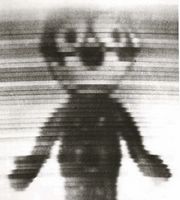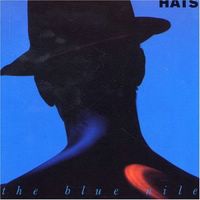
No butter for Bubba, 10-kilogram lobster bound for Ripley's museum
PITTSBURGH (AP) - He could be older than Warner Bros. studio, General Motors, the Boy Scouts and the states of Arizona and New Mexico. He could have survived two world wars and Prohibition.
He could have been dinner. He's Bubba, a 10-kilogram leviathan of a lobster pulled from the waters off Nantucket, Mass., and shipped to a Pittsburgh fish market. The lobster has been kept in a tank near a fish counter in Wholey's Market since Thursday while owner Bob Wholey tried to figure out what to do with it.
"It is overwhelming," Wholey said. "If you see it, you will never forget it. Customers are just in awe."
People for the Ethical Treatment of Animals sent Wholey a letter asking him to work with the group to release Bubba back in the Atlantic Ocean off the coast of Maine.
Another group calling itself People For Eating Tasty Animals reportedly offered Wholey a hefty price for the lobster. At Tuesday's price of about $35 US a kilogram, Bubba would retail for $350. A woman offered to buy him for $500 and then send him to an aquarium.
On Tuesday, Wholey gave the lobster to the Pittsburgh Zoo & PPG Aquarium, which will send him to an aquarium at a Ripley's Believe It or Not museum.
Based on how long it typically takes a lobster to reach eating size - about five to seven years to grow to a half-kilo - some estimate Bubba is 100 years old.
That would make the crustacean older than Warner Bros. (1907), the Boy Scouts (1910) and the states of Arizona and New Mexico (1912), not to mention the first commercial radio station (1920), television (1927) and computers (1943).
Bob Bayer, executive director of the University of Maine's Lobster Institute, is skeptical and estimates that Bubba is likely 50 years old, but doesn't know for sure. Warm water and plenty of food may have more to do with a lobster's size than how long it's been alive.
"We have looked at all kinds of things to figure out if there is any way to age a lobster. I'm guessing 100 years is probably too high but I can't argue with it because you don't know," Bayer said.
Some large lobsters haven't fared well after they were caught. In 1985, a 11.5-kilogram lobster that the New England Aquarium planned to give to a Tokyo museum died when the water temperature rose and the salt dropped in its aquarium. In 1990, an eight-kilogram lobster named Mimi died just days after being flown to a restaurant in Detroit. Last year, a six-kilogram lobster named Hercules that was rescued by a Washington state middle school class died before it could be released in off the coast of Maine.
Bubba will be kept at the Pittsburgh Zoo's aquarium, where he will be checked out to make sure he is healthy enough to make the trip to his permanent home at Ripley's, said zoo spokeswoman Connie George. He will be kept under constant watch in a quarantine area and won't be on display, George said.
Although his business is to sell seafood, Wholey says Bubba was never bound to be boiled and buttered. And he's become a little philosophical after seeing the lobster, which could be twice his 54 years.
"I don't think you could eat something that big. . . . What range of emotions does a lobster have? Greed? Lust? Love? I'm just going to give him to the zoo and hope he lives another 100 years," Wholey said.
"If you sat down and ate this thing, wouldn't that be a bit shellfish?"










